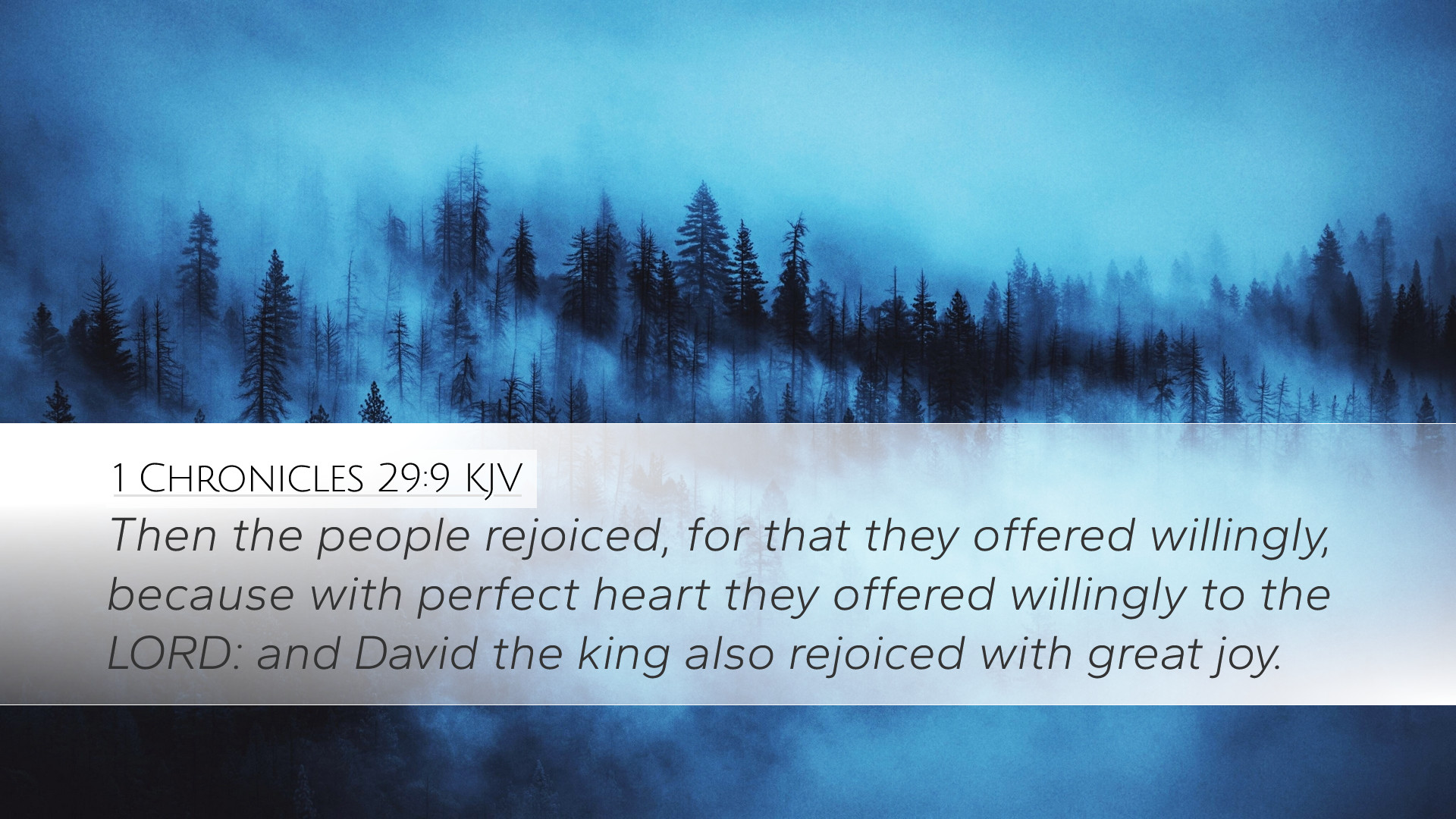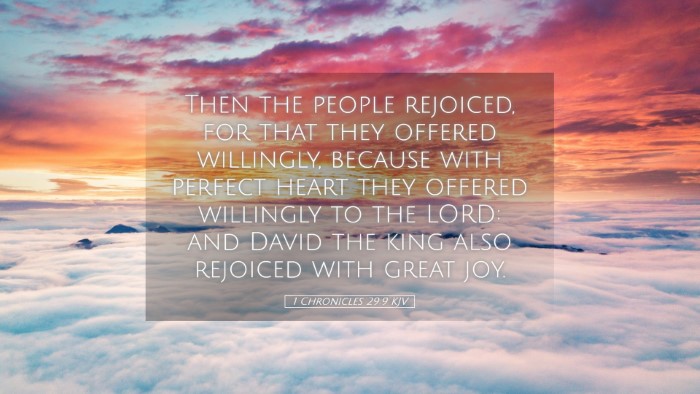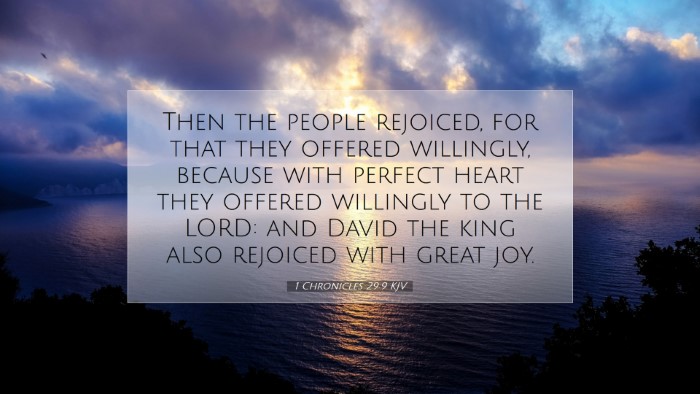1 Chronicles 29:9 Commentary
Verse: "Then the people rejoiced, for they had offered willingly, because with perfect heart they offered willingly to the Lord: and David the king also rejoiced with great joy."
Introduction
This verse captures a significant moment in the narrative of King David as he prepares to build a temple for the Lord. It encapsulates themes of willingness, joy, and the communal spirit of devotion. The reactions of both the people and David highlight the importance of the heart's intent in worship and sacrifice.
Contextual Analysis
The immediate context of this verse lies in David's organization of materials and resources for the construction of the temple. In the preceding chapters, David gathers contributions from his royal resources and encourages the people to contribute toward this holy project. The offerings symbolize not just a physical contribution but a spiritual commitment to the worship of God.
Insights from Commentators
-
Matthew Henry:
Henry emphasizes the significance of the people’s willingness to give. He notes that a cheerful giver is more precious than the gift itself, pointing out that God values the heart's intention over mere material contributions. The “perfect heart” mentioned signifies a heart fully devoted to God, which aligns with the New Testament teaching found in 2 Corinthians 9:7, where Paul encourages believers to give not reluctantly or under compulsion, but cheerfully.
-
Albert Barnes:
Barnes highlights the communal joy experienced during this offering. He reflects on how the people's joy was rooted in their voluntary participation in a noble cause. This sense of community around a shared religious duty not only strengthens the individual faith of the givers but also unites them in their collective worship of God. Moreover, he points out that David's joy is mirrored in the people's, indicating that a true leader inspires and aligns with the desires and joy of his people.
-
Adam Clarke:
Clarke connects this passage with the broader theme of divine worship and commitment. He interprets the term “willingly” as a reflection of God's grace working in the hearts of the people. Their readiness to contribute speaks to a transformed heart responding to God's love and provision. Clarke suggests that this kind of willingness in giving is not just about financial contributions, but about giving oneself wholly to God’s purposes.
Theological Implications
The act of offering willingly is a profound theological construct. It speaks to the nature of genuine worship, which engages the whole person—mind, heart, and strength. This verse invites reflection on the motivations behind our offerings to God. Are they born from obligation, or are they expressions of heartfelt gratitude and love? As the New Testament encourages believers to be living sacrifices (Romans 12:1), this principle echoes through the ages.
Application for Today
This rejoicing in willing offerings provides several applications for modern believers:
- Encouragement in Giving: Just as the Israelites rejoiced in their contributions, modern congregations can foster an atmosphere where giving is seen as an act of celebration and joy in supporting God’s work.
- Heart Condition Matters: The emphasis on a “perfect heart” reminds us to examine our intentions behind acts of service and giving. Pastors and leaders should encourage reflection on the heart's posture during acts of worship, fostering spiritual growth in their communities.
- Community Worship: This verse highlights the importance of communal participation in worship and service. Churches should encourage collective involvement in projects that bring glory to God, enhancing the joy and unity among members.
Conclusion
1 Chronicles 29:9 is much more than a description of an event; it reveals the heart of worship and the joy found in willing service to God. Through the insights of Matthew Henry, Albert Barnes, and Adam Clarke, we gain a deeper understanding of the theological and practical implications of this verse. As we engage in our own acts of worship, may we reflect on the willingness of our hearts, rejoicing together as we contribute to God's glorious kingdom.


